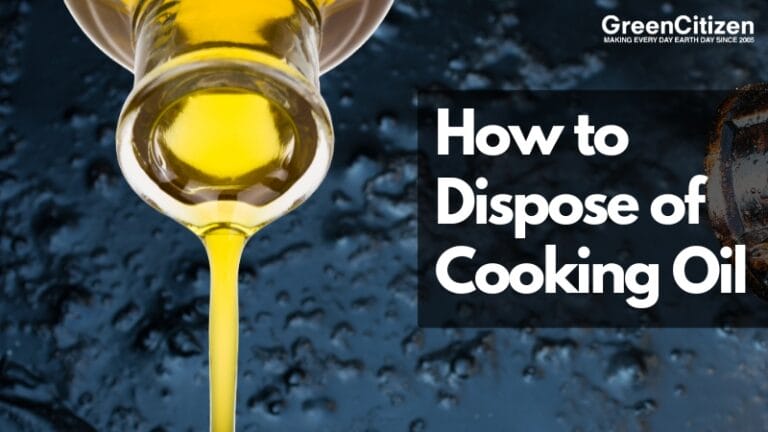Cooking up your favorite fried chicken, crisping bacon for breakfast, or browning beef for taco night—all these delicious meals end with the same messy question: What do we do with the leftover oil?
If you’ve ever tipped it into the sink, you’re not alone. However, this seemingly harmless act leads to clogged drains, expensive plumbing bills, and massive environmental damage known as “fatbergs.”
Many of us are left scratching our heads, thinking, “How in the world do I get rid of this oil safely?” Tossing it in the trash might seem like an easy fix, but if done incorrectly, it creates a leaky mess for sanitation workers.
The Short Answer: The most sustainable way to dispose of cooking oil is to let it cool, pour it into a sealable container, and drop it off at a local recycling facility. If recycling isn’t an option, you must solidify the oil (using hardeners or absorbent materials) before placing it in the trash.
In this guide, we’ll walk you through exactly how to say goodbye to used grease safely. Whether you’re a beginner in the kitchen or a seasoned chef, these steps will ensure you aren’t part of the “clog squad.”
🌿 Key Takeaways
Never Pour Down Drains: pouring cooking oil down the sink or toilet causes massive pipe clogs (fatbergs) and sewer damage, even if you run hot water.
Recycle When Possible: The most sustainable method is to cool the oil, bottle it, and take it to a local collection center to be turned into biodiesel.
Solidify Before Trashing: If you must throw it away, mix the cooled oil with absorbent materials (like cat litter or sawdust) or freeze it in a sealed container to prevent leaks in the garbage.
What Is the Best Way to Dispose of Cooking Oil?
💡 Quick Answer: To dispose of cooking oil properly, always let it cool completely first. The most eco-friendly method is pouring it into a sealable container and taking it to a local cooking oil recycling center. If recycling isn’t available, mix the oil with absorbent material (like cat litter or sawdust) to solidify it, place it in a sealed container, and dispose of it in the trash. Never pour it down the drain.
Disposing of cooking oil doesn’t have to be complicated. Here are the three best methods, ranked from most sustainable to the standard household solution.
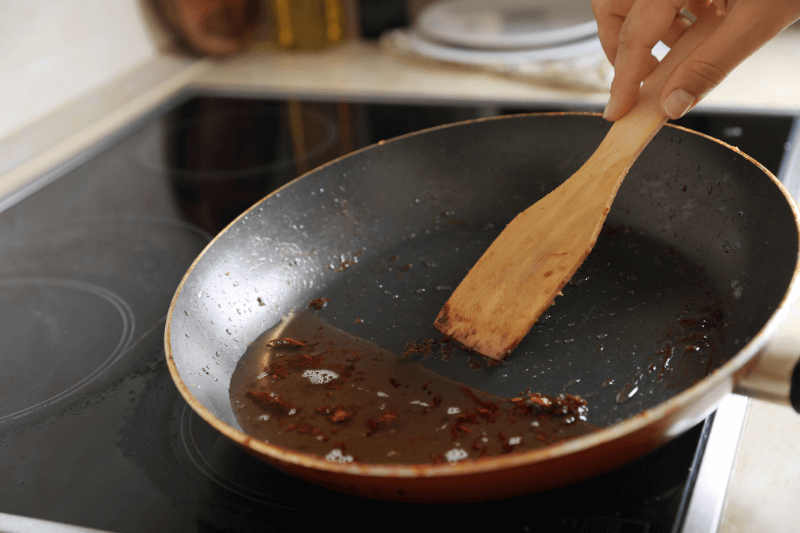
Option 1: Recycle at a Local Center (Best for the Planet)
For those of us with larger volumes of oil (or just a strong eco-conscience), seeking out local biofuel centers is a game-changer. These specialized facilities accept used cooking oil and convert it into biodiesel—a cleaner-burning fuel that powers vehicles.
Instead of sitting in a landfill, the oil that fried your potatoes could power a truck!
- How to do it: Collect your cooled oil in a large jug. Once full, consult the Green Directory, our nationwide search engine for recycling centers.
- Find a location: Just go to “Green Directory” at the top of this page, enter “cooking oil” and your zip code to find the drop-off recycling locations closest to you.
Option 2: Solidify and Trash (The Household Solution)
If you cannot access a recycling center, the trash is your next option—but never pour liquid oil directly into a garbage bag. It will leak, attracting pests and creating a nightmare for garbage collectors. You must solidify it first.
How to Solidify Oil for Disposal:
- Let it cool: Never manipulate hot oil.
- Mix it up: Combine the oil with absorbent materials. I’ve used everything from cat litter and sawdust to spent flour or sand.
- Use a Hardener: Commercial oil hardeners (often stearic acid flakes) are available that turn liquid oil into a solid puck.
- The “Freeze” Method: For oils that stay liquid at room temperature (like vegetable oil), you can pour them into a can and pop them in the freezer until solid. However, you must toss them immediately on trash day before they melt!
Option 3: Compost (Only for Vegetable Oils)
Can you compost oil? The answer is a cautious “yes,” but with strict rules.
- Vegetable Oils Only: You can add small amounts of pure vegetable oil (olive, corn, sunflower) to a compost pile.
- No Animal Fats: Never compost bacon grease or oil used to fry meat. This attracts rats, raccoons, and flies, and it spoils the compost by making it anaerobic (lacking oxygen).
How to Store Used Oil Before Disposal
💡 Quick Answer: Store used cooking oil by allowing it to cool to room temperature first. Pour it into a shatterproof, sealable container, such as the original plastic oil bottle, a glass jar, or a heavy-duty cardboard milk carton. Keep the container in a cool, dry place away from direct sunlight until you are ready to dispose of the cooking oil.
You rarely need to run to the disposal center after every meal. Most people collect oil over time. Here is the safest way to store it:
- Cool Down First: Hot oil melts plastic and cracks glass. Let it reach room temperature.
- Choose the Right Container:
- Glass Jars: Great for storage, but be careful not to drop them.
- Original Bottles: If you saved the plastic bottle the oil came in, use a funnel to pour the used oil back in.
- Wax-Lined Cartons: Empty milk or juice cartons are excellent for grease disposal because the wax lining prevents leaking, and the top seals shut.
- Avoid “Baggies”: Do not store liquid oil in Ziploc bags or biodegradable produce bags. They are prone to punctures.
How Can You Repurpose Old Cooking Oil Instead of Throwing It Out?
💡 Quick Answer: Before you dispose of cooking oil, consider repurposing it. You can strain and reuse oil for frying 2-3 times (provided it hasn’t reached its smoke point). Other sustainable uses include making homemade soap, creating non-toxic insect repellent for gardens, or using it as a lubricant for squeaky hinges.
Knowing how to dispose of cooking oil also means knowing how to use it for something else.
Try these methods:
1. Reuse It in the Kitchen
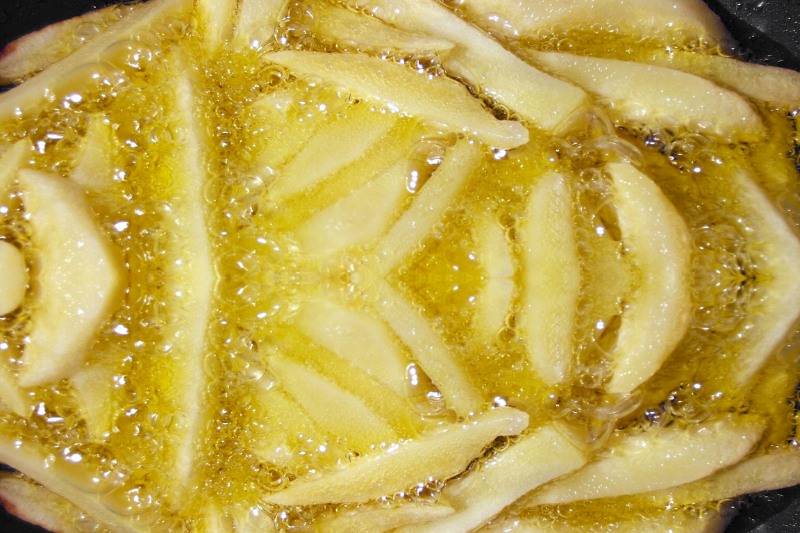
I’ve done this myself—you can safely reuse oil two or three times for frying. Just make sure it still smells fresh. Strain it through a cheesecloth or coffee filter to remove food particles (which cause the oil to spoil).
💡 Note: Each reuse lowers the smoking point, so don’t use recycled oil for ultra-high heat searing.
2. Craft Homemade Soap
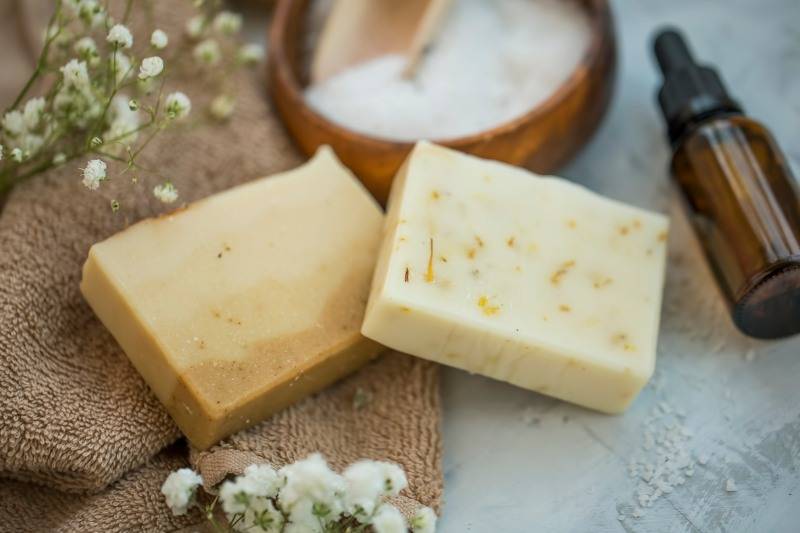
Soap is traditionally made from fat and lye. Used cooking oil (once filtered) is an excellent base for homemade laundry soap or gardening soap.
It’s a satisfying DIY project that turns waste into a cleaning product.
3. Create Non-Toxic Pest Control
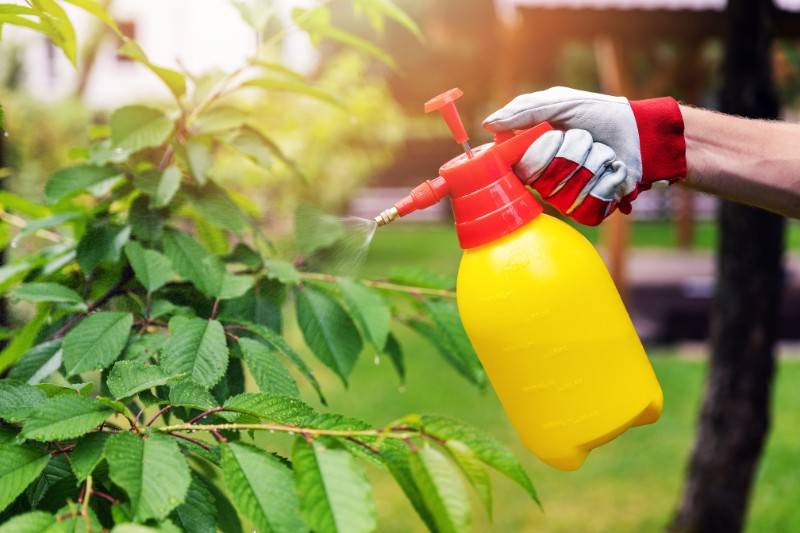
A lesser-known use I’ve discovered is using the oil as a base for bug spray.
Mix 1 cup of vegetable oil with 1 tablespoon of mild soap. When ready to apply, add 2 teaspoons of this mix to a quart of water and spray on plants.
It smothers aphids and mites without using harsh chemicals.
How NOT to Dispose of Cooking Oil (Mistakes to Avoid)
💡 Quick Answer: When figuring out how to dispose of cooking oil, avoid these common mistakes: never pour hot or cold oil down the sink or toilet, as it causes pipe-clogging fatbergs. Do not pour liquid oil directly into trash bags where it can leak, and do not put oil-coated containers in standard recycling bins, as this contaminates the recycling stream.
It is just as important to know what not to do. Avoid these three common errors to save your home and the environment.
1. Don’t Pour It Down the Sink
This is the cardinal sin of the kitchen. You might think, “It’s liquid, it will flow.” Wrong! Even if you run hot water and soap, the oil quickly cools and solidifies further down the pipe. Over time, this restricts water flow, causing backups in your home and massive clogs in city sewers.
2. Don’t Dump Grease Down the Toilet
The toilet is not a trash can. Flushing grease is just as bad as pouring it down the sink. It clings to the walls of the sewer pipes and traps other debris (like “flushable” wipes), leading to sewage overflows.
3. Don’t Pour It Outside
Pouring hot grease on the ground can kill grass and plants. Furthermore, when it rains, that oil washes into storm drains and eventually into local rivers and oceans, harming wildlife.
Why Improper Oil Disposal is an Environmental Crisis
💡 Quick Answer: Discarding cooking oil the wrong way can clog household plumbing and contribute to sewer blockages and overflows. It can also leak in trash, attract pests, and create odors and contamination issues.
Discarding cooking oil carelessly is more than just a plumbing nuisance; it’s a public infrastructure problem.
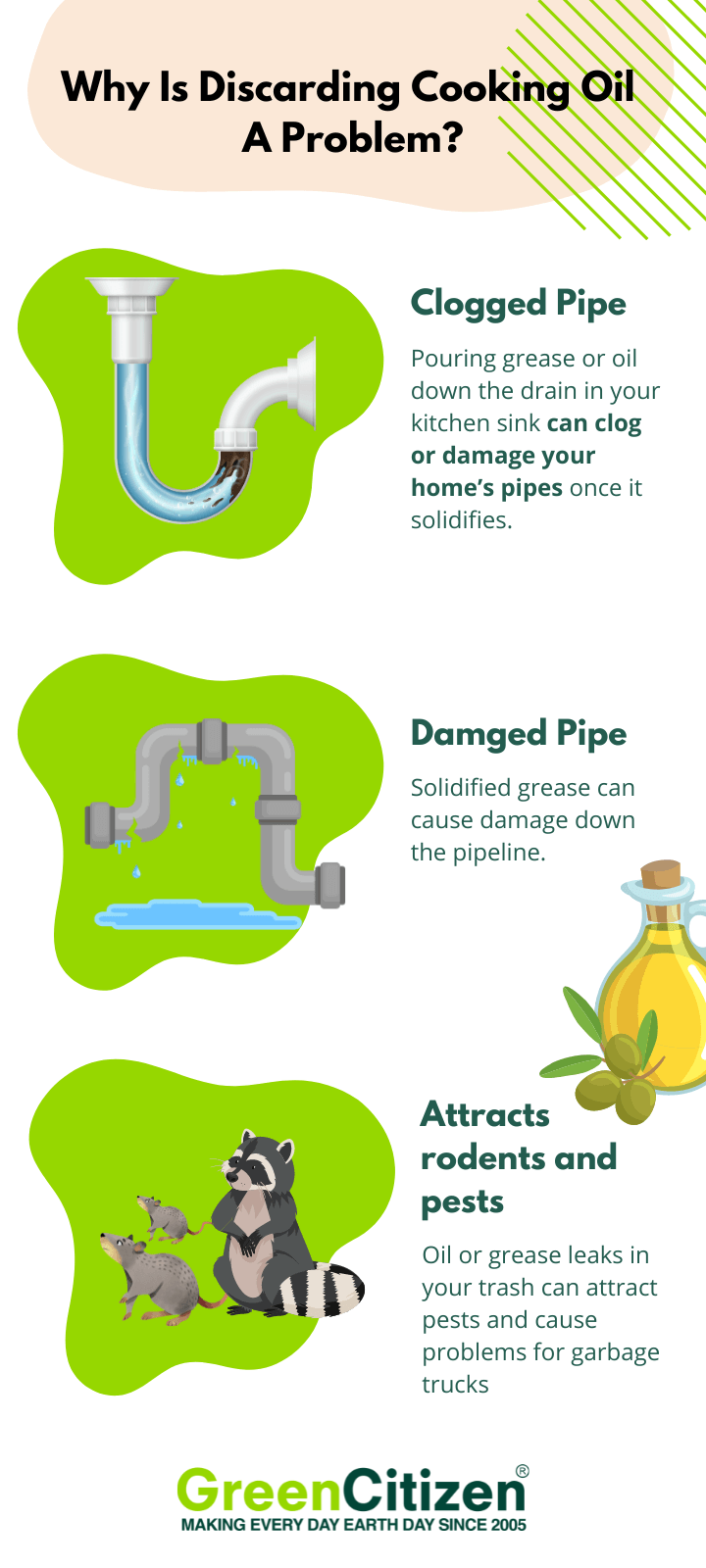
Plumbing and sewer impacts
Oil solidifies as it cools, sticking to pipes and collecting debris. Over time, this leads to stubborn blockages and expensive repairs.
Trash impacts
If oil leaks into your bin, it can:
attract rodents and insects
cause foul odors
make a mess for collection and processing systems
That’s why sealing (and solidifying for small amounts) matters.
Tips for Reducing Cooking Oil Waste
💡 Quick Answer: To reduce cooking oil waste, use oils with higher smoke points (like corn or peanut oil) which last longer. You can also invest in an Air Fryer to cook with 80% less oil, or choose to bake foods like french fries in the oven rather than deep frying them.
The easiest way to deal with waste is to create less of it.
- Invest In An Air Fryer: Most things that you would commonly cook in a deep fryer taste great out of an air fryer. You get the crunch with a fraction of the oil.
- Buy a Smaller Fryer: If you don’t cook for a crowd, use a smaller pot or fryer. This reduces the volume of oil required to submerge your food.
- Keep Your Oil Clean: Avoid salting food before frying it (salt breaks down oil) and filter it between uses to extend its lifespan.
Frequently Asked Questions (FAQ)
You can dispose of frying oil by taking it to a local recycling center that accepts used cooking oil. If you can’t do that, store it in a sealed non-breakable container first before tossing it in the trash.
Yes, you can dispose of cooking oil in the garden for compost, but it should have been used to fry plant-based foods. If it was used to fry meat, it may attract rats, raccoons, and other pests, so just bear that in mind.
Yes, you can put cooking oil in the bin. But you should cool it down first and store it in a sealed non-breakable container (not a plastic bag!) so it won’t leak in the garbage.
You can dispose of expired vegetable oil by tossing it in the trash in a sealed non-breakable container. You can also take it down to a local waste center that accepts grease. This is the most responsible method for disposing of cooking oil.
No, you can’t pour vegetable oil down the drain — the grease will clog up the pipes or cause problems at the local wastewater mains for your area. Reuse it instead or store it in a sealed non-breakable container before you toss it in the trash.
When you pour oil down the sink, the sink will get clogged up as the grease starts to solidify. This can cause your kitchen pipes or the local wastewater mains to overflow, which can be hazardous to our health and the environment.
No, you can’t dump grease down the toilet. If you do, it will clog up your pipeline when the grease solidifies.
You should throw out frying oil after you’ve reused it 2 or 3 times. However, if it smells okay and is still burning hot enough for you, then reusing it a couple of more times should be fine.
Conclusion: Dispose of Cooking Oil the Right Way
From reusing to recycling into biodiesel, there are several responsible ways to handle leftover oil. The key is choosing a method that protects your plumbing and reduces environmental harm.
For the most sustainable option, find a nearby drop-off location using GreenCitizen’s Green Directory and keep used cooking oil out of drains for good.
